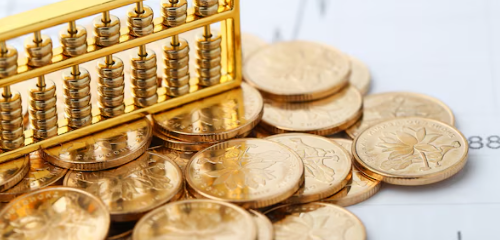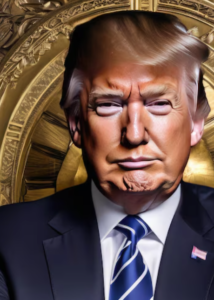$GLD $BTC $GOLD
#RayDalio #Gold #Investing #Economy #Finance #MarketTrends #PreciousMetals #Inflation #WealthManagement #Crypto #Bitcoin #EconomicShifts
Billionaire investor and Bridgewater Associates founder Ray Dalio has long been an advocate for including gold as a key component of a diversified portfolio. His timeless advice, “If you don’t own gold, you know neither history nor economics,” reflects his concerns over financial stability amid changing economic tides. Gold, often considered a safe haven asset, has proven its resilience in times of economic volatility, and Dalio’s warning serves as a reminder to investors to allocate their portfolios strategically to hedge against unpredictable market conditions. As fiscal policies, inflationary pressures, and geopolitical instability challenge the global financial system, gold remains an appealing option for protecting wealth.
Gold’s role in a portfolio goes beyond simple diversification. Historically, it has maintained its value during periods of rising inflation and currency devaluation, particularly when central banks have adopted loose monetary policies. With interest rates higher than they’ve been in decades, some investors might argue that cash or bonds could rival gold’s significance. However, Dalio’s argument highlights that gold offers unique protection against long-term losses in purchasing power caused by inflation. In Q4 of 2023, while cryptocurrencies like $BTC have been an alternative hedge for younger, tech-savvy investors, gold-backed exchange-traded funds like $GLD have also seen steady inflows. This sustained demand underpins the enduring belief in gold’s utility as a monetary asset and inflation hedge.
Dalio’s contention that understanding gold is essential to understanding both history and economics resonates because of gold’s centrality in financial infrastructure over millennia. From gold-backed currencies to its role under the Bretton Woods system, gold has shaped global economies, serving as a universal store of value. Today, central banks continue to hold significant reserves of gold, with countries like China and Russia increasing their gold purchases in response to currency volatility and potential shifts away from the U.S. dollar as the dominant global reserve currency. These dynamics point to gold’s enduring importance in mitigating geopolitical risks, leaving Dalio’s assessment as relevant now as it was decades ago. The billionaire’s perspective is especially pertinent given rising tensions between major economies and continued de-dollarization trends worldwide.
While gold still occupies a prominent place in the portfolios of institutional investors, retail investors exploring alternative assets haven’t necessarily abandoned traditional safe-haven strategies like gold. Cryptocurrencies, especially Bitcoin ($BTC), have surfaced as a digital counterpart to gold, often referred to as “digital gold” due to its fixed supply and decentralized characteristics. However, Bitcoin’s volatility makes it a riskier prospect compared to physical gold or gold-backed funds like $GOLD or $GLD. Both gold and Bitcoin illustrate the growing importance of hedging mechanisms as markets adapt to economic pressures, from rising inflation to potential recessions. Dalio’s advice serves as a valuable blueprint for navigating economic uncertainty as the global financial landscape continues to shift in unpredictable ways. Investors who heed this wisdom are more likely to weather financial turbulence and emerge stronger on the other side.











Comments are closed.